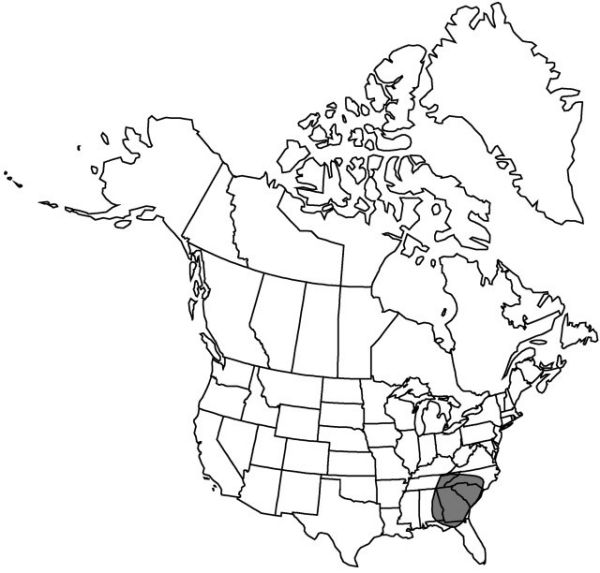Smilax hugeri
Bull. Torrey Bot. Club 43: 420. 1916.
Herbs; rhizomes knotty, slender. Stems annual, erect, 2–5 m, herbaceous, glabrous; prickles absent. Leaves few, disposed distally or evenly distributed, subequal; petiole shorter than blade; tendrils absent or rudimentary; blade oblong, oblong-ovate, or sometimes oval, 2.5–12 × 1.5–7.5 cm, not glaucous, puberulent abaxially, base rounded to slightly cordate, margins entire, apex broadly rounded to obtuse or abruptly pointed. Umbels 1–3, proximalmost axillary to bracts, 5–12-flowered. Flowers: perianth greenish; tepals 3–3.5 mm; anthers shorter than filaments; ovules (1–)2 per locule. Berries globose, 8–10 mm diam., glaucous. 2n = 26.
Phenology: Flowering Apr–May.
Habitat: Moist, mixed woods and wooded slopes
Distribution

Ala., Fla., Ga., N.C., S.C., Tenn.
Discussion
Smilax hugeri is distinguished from S. ecirrhata and S. biltmoreana mainly by leaf morphology. Specimens from Tennessee are not sharply distinct from S. ecirrhata. J. K. Mangaly (1968) cited this as possible evidence of divergence from that species.
Selected References
None.